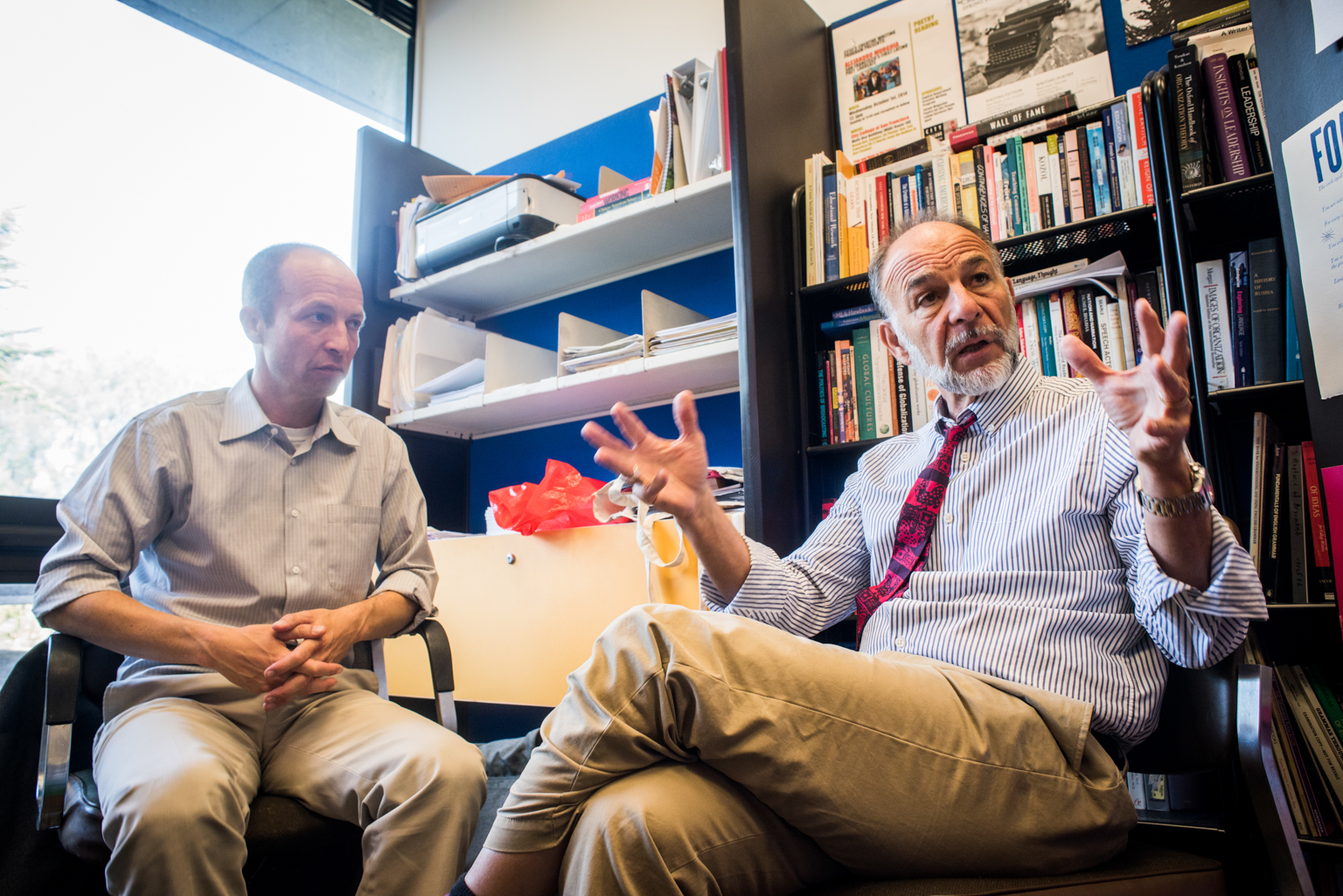Professor and Pulitzer Prize-winning journalist develop ‘Solito, Solita’

By Bethaney Lee
In an oral history project relaying the stories of young Central American immigrants, City College English professor Steven Mayers and Pulitzer Prize-winning journalist and educator Jonathan Freedman recorded testimonies for their upcoming book titled “Solito, Solita.”
Mayers and Freedman, in association with City College student Oscar Garcia, will publish the book as part of the “Voice of Witness” series that highlights the tales of people who have been marred by both domestic and global injustices.
“With Oscar we felt like we could travel to areas we might not want to go to alone,” Freedman said. “He really was able to help us connect, having come to this country himself from Guatemala.”
Guatemala, El Salvador, and Honduras are Central America’s three main countries that have been ravaged by warfare, especially during the 1960s Central American civil crisis.
“The primary thing people are running from now is gang violence, and particularly these two gangs: MS-13 and the 18th Street Gang,” Mayers said.
Gang influence stretches far. Mayers and Freedman’s first interview was with someone whose pseudonym is Adrian.
Adrian had left his home country of Guatemala, only to end up in one of California’s adult detention facilities on his 18th birthday to be deported back.
Upon Adrian’s release, Freedman and Mayers recorded his experience for their oral history project, where they learned the details he faced, being surrounded by gang life.
“Here we were interviewing him at Mills College, a beautiful college on a beautiful day in California,” Freedman said, “And he is telling us how his mother was killed in front of his eyes when he was four or five by a gang member.”
Freedman told the grave and trying tale of Adrian, who was approached as a young teenager in Guatemala by the 18th Street Gang—-the same gang that killed his mother.
Adrian kept resisted their invitation until 18th Street Gang members surrounded him while he walked down the street. They stabbed and shot him, then left him for dead.
Carving a jagged line down his collared shirt, Freedman dramatized the placement of a zippered scar their first interviewee bore as result of Central American gang violence.
It was Adrian’s spirited journey that resonated with the editors enough to title their book after a phrase Adrian so adamantly repeated while on his mission to cross the border: “Solito, solito” or “alone, alone.”
“It’s very telling of the humble nature of Latin America,” Mayers said. “His story is nothing less of incredible.”
Mayers and Freedman continued conducting interviews, leading them to the brave individuals responsible for running a string of migrant shelters in Mexico. According to Mayers, these same people continue to risk their lives in an effort to save the lives of many youth fleeing from Central America.
“It reminds me more and more of the underground railroad, and the entire effort of this country to help people out of slavery,” Mayers said.
Mayers and Freedman hope that when “Solito, Solita” is published, it will give voice to all the unheard Central American youth that fought their way into America and are now fighting to stay.
“These are youth we are talking about—these are kids who are fleeing their homes at age 14 and crossing the border at, say, age 15. Living here in isolation, hiding, when their whole lives are in front of them,” Freedman said. “A book just talking about the horrors of where they came from and the struggles they have had is not something either of us want to focus on. We look at what has happened to them, but more importantly, we look at how they can write their own futures.”
The “forward-looking” book is a year from completion. Freedman and Mayers are still conducting interviews and are currently in the transcribing process.
For more information on “Solito, Solita,” visit the blog “His Life Hangs in the Balance,” which can be found on voiceofwitness.org.
